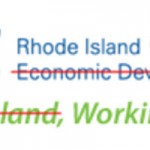National Popular Vote for Rhode Island: Still Crazy After All These Years
We’ve written several items over the years at Anchor Rising on the Presidential National Popular Vote Interstate Compact, up for a vote in both House and Senate committees today (somebody wants this decided upon fast!). The basic arguments haven’t changed; the usual argument for why a small state like Rhode Island should support National Popular Vote is that it is supposed to make Presidential candidates pay more “attention” to Rhode Island. This idea has never made any sense, and still doesn’t, as both Marc…
[W]hile a Democrat could incessantly campaign in Rhode Island to jack up an overall popular vote tally, they would probably acutely focus on bigger population centers like New York, Los Angeles, Chicago, Houston etc.to maximize their turnout and run up their their popular vote tallies. Under a popular vote scheme, they could do that and still get the Rhode Island votes anyway. So where’s the Democrat incentive to visit a small state like li’l Rhody for the sake of marginal popular vote gains when the big numbers can be had in the big cities?
…and Justin…
What that means is that politicians would have our four-EC votes of incentive to campaign in cities and states with higher populations and less homogeneous voting patterns. One-hundred and thirty cities have larger populations than Providence’s, and 42 states have larger populations than Rhode Island’s. And the state-by-state component of campaign strategies would account for a smaller amount of the total effort, because the National Popular Vote would effectively make the voter audience a national one, thereby increasing the importance of advertisements on a national scale.
…have explained.
Indeed, NPV didn’t make sense to a majority of Rhode Island House members in 2009, who voted against it by a margin of 28 – 45 that year. Amongst currently seated Reps who were also present in 2009, the vote was 12 – 29 (although Randal Edgar‘s Projo story from today indicates that Rep. Raymond Gallison has changed his position from no to yes, so let’s call it 13 – 28); don’t be fooled into thinking that NPV is a long-term rank-and-file priority that has been bottled up by leadership.
If the Rhode Island legislature was really interested in making Rhode Island into a Presidential “battleground state” they could do that immediately, by changing the method for awarding Rhode Island’s Presidential electors to a proportional system, with winner-take-all occurring only if a candidate crosses a supermajority vote threshold, say 62.5%. Under this system, it would be worth 2 electoral votes for candidates to work towards either gaining for themselves or denying their opponent a supermajority win, which would frequently put Rhode Island “in play”. (The previous link will answer the question of why 62.5%, if you are interested in further detail).
Proportional allocation, with supermajority winner-take-all makes perfect, direct sense, if the priority is truly getting more Presidential campaign attention for Rhode Island, and it can be implemented by a simple act of the legislature, without having to wait on action by any other state. Of course, it’s a plan that’s never been considered — revealing just about everything you need to know about how wide the disconnect is, between the expressed motivation and the reality of NPV.


